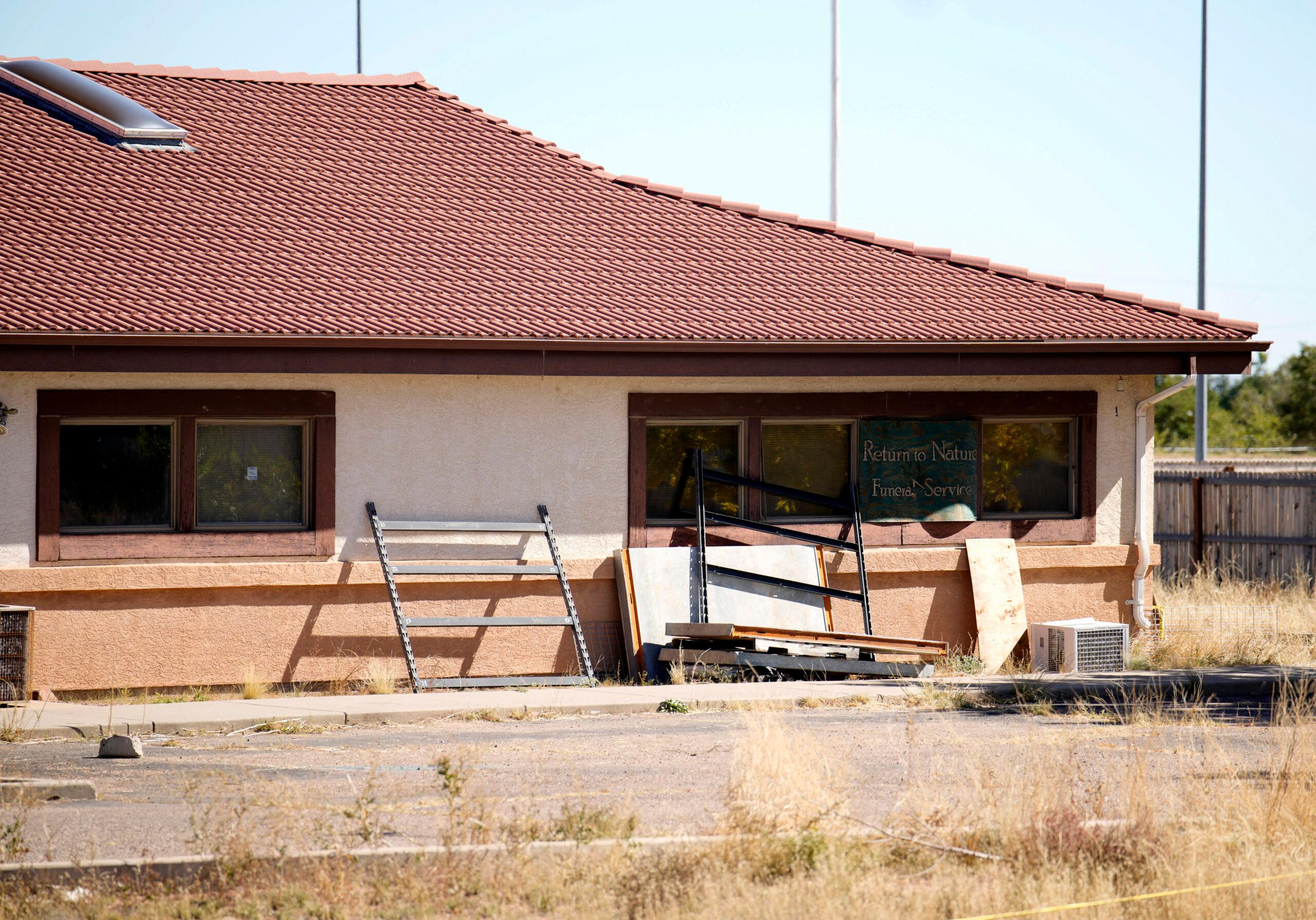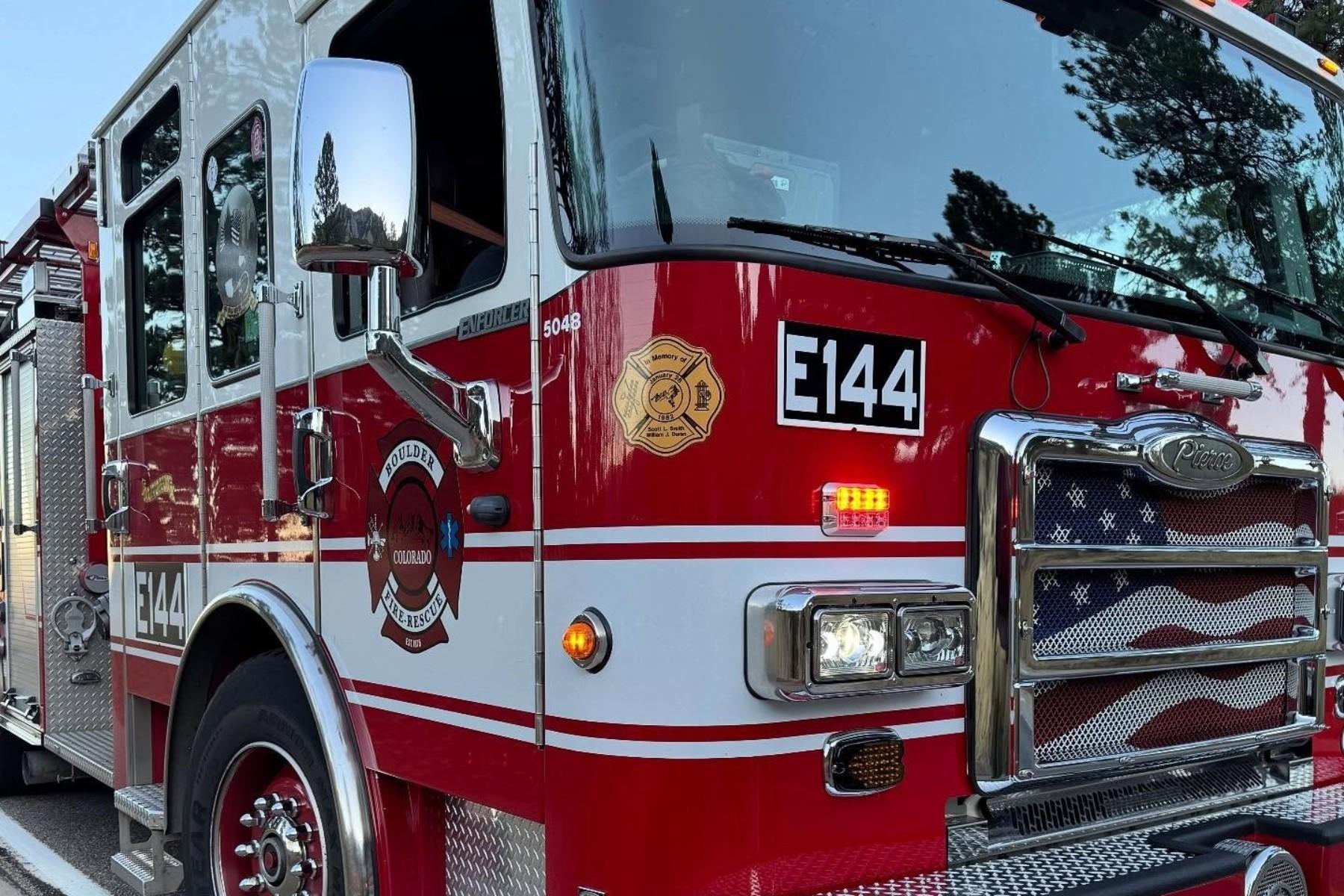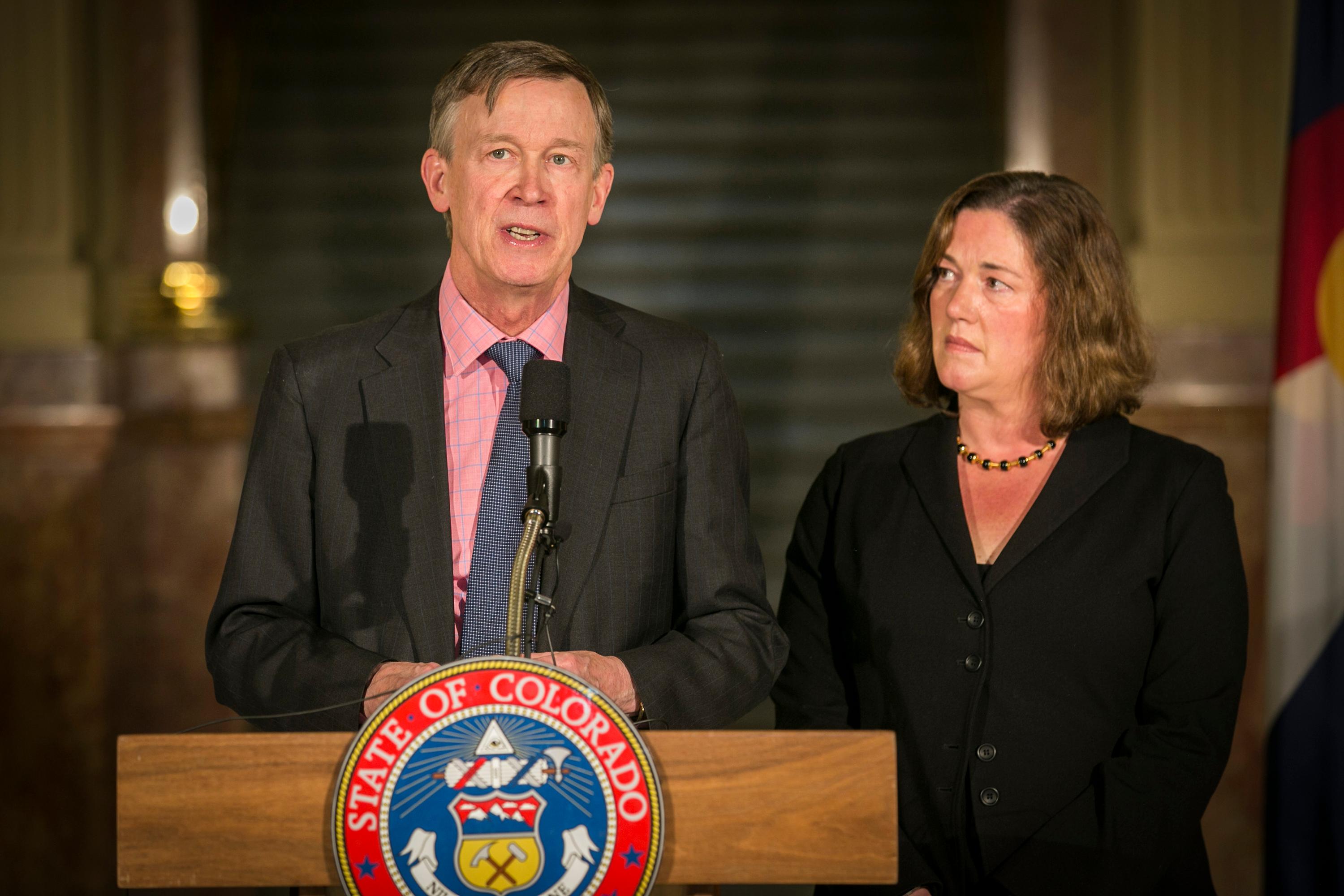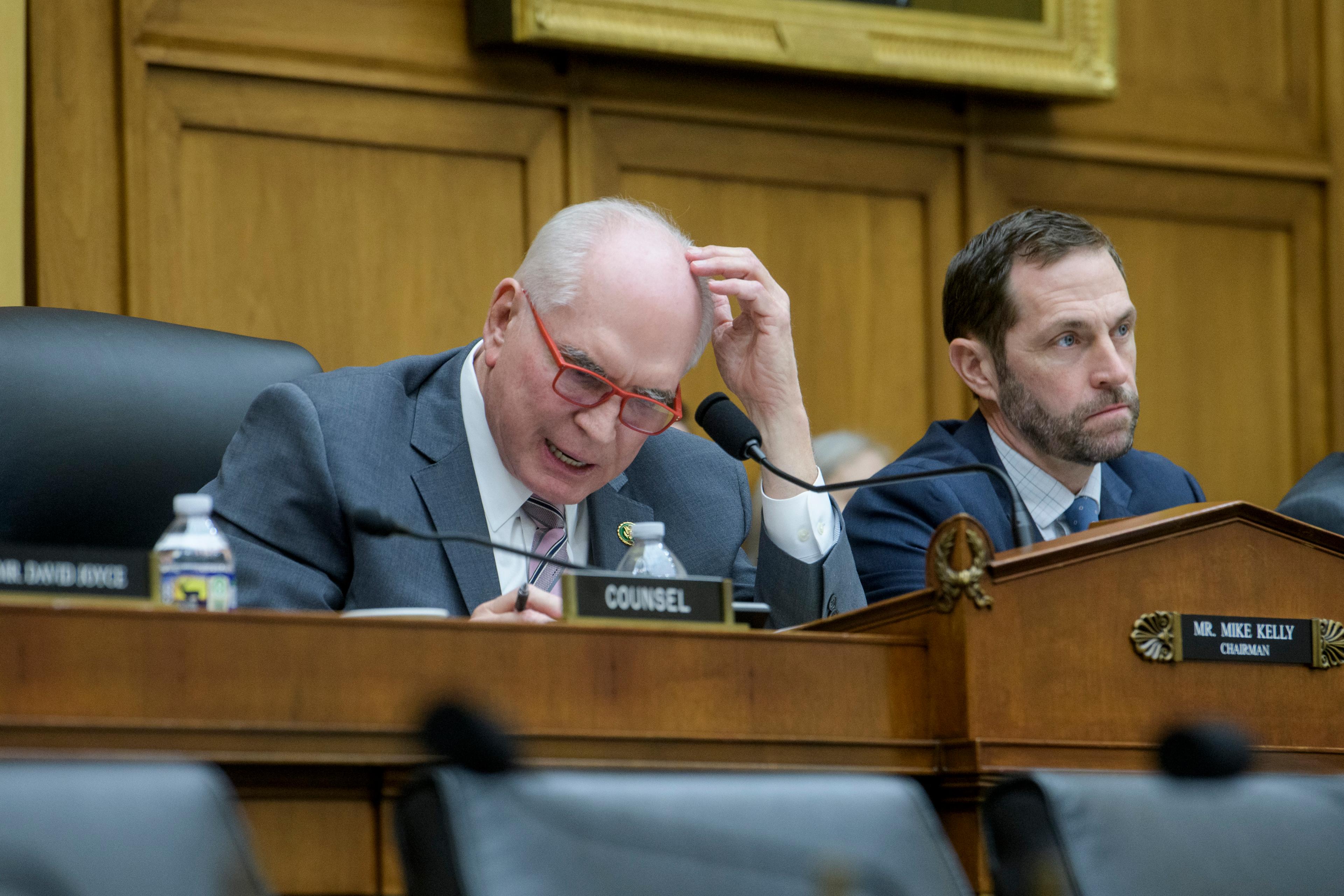
At a time of rising political violence, including two assassination attempts against then-presidential candidate Donald Trump last summer, a Congressional task force has recommended more than three dozen reforms to ensure the safety of high-ranking public officials.
U.S. Rep. Jason Crow of Aurora was the ranking Democrat on the task force. He told Colorado Matters senior host Ryan Warner that the Secret Service needs to hire more people and employ new technology to protect the nation’s leaders.
“We need more Secret Service agents, period. We just do. We can't perform these functions with the level of agents that we have,” Crow said.
“But there also are other ways in which we can use automation, we can use drones, we can use technology … We can leverage new ways of doing things to actually provide better service and to get the job done cheaper and more effectively.”
A July 13 assassination attempt at an outdoor rally in Butler, Pennsylvania left Trump with a wound to his right ear. One person in the audience died and two others were critically wounded. Secret Service agents killed the shooter, Thomas Crooks.
In September, a gunman set up a sniper’s nest with a clear view of the golf course where Trump was playing in West Palm Beach, Florida. A Secret Service agent spotted the man and thwarted that attempt.
The Secret Service operation in Florida worked well but the one in Pennsylvania was riddled with mistakes from beginning to end, Crow said.
Among other things, the agency’s command and control procedures – meant to determine who runs an operation and how orders are communicated down the line – were flawed, according to Crow, a former Army officer who served three combat tours in Afghanistan and Iraq.
“What I learned more than anything (in) conducting special operations missions across vast distances, with units of different branches of the service, different countries, is the ability for all of those units across space and time to communicate with each other, and then unified command and control – who is in charge? How is that person directing the units and is there a common operational picture?
“Do the commanders have situational awareness of where everybody is and what's happening? That's what is supposed to happen. That is not what's happening at many of these events with the Secret Service.”
This interview has been edited for length and clarity.
Ryan Warner: Is this generally a more dangerous time for elected officials? I'm thinking of the recent testimony from the Capitol police chief that there were more than 700 threats against members of Congress in the last month, including at least 50 false 911 calls to get police to respond to members' homes, often called swatting.
U.S. Rep. Jason Crow: There's no doubt, Ryan. This is a dangerous time. It's a very volatile time. Threats against members of Congress have surged in the last five years since I’ve been in Congress. They’re actually four times what they used to be just six years ago. Threats across all levels of government – I’ve spoken to school board directors, city councilors, mayors who receive threats regularly. I mean levels of government that you wouldn't typically associate with this type of vitriol and this type of targeting and threats are now receiving it regularly.
And then of course you see the multiple threats on former President Trump's life. The moment that we are in is a moment of volatility. It's a moment of rising political extremism. Words matter. People will act on the words of leaders and elected officials and try to take it upon themselves to exact violence on people.
Warner: Do you feel safe? Have you had threats?
Rep. Crow: I have had threats since the first days of my time in Congress. As you know, I was an impeachment prosecutor … one of the impeachment managers is what they're called, in the first impeachment trial of Donald Trump. I had many threats during that period and had 24/7 armed guards, Capitol police and local police, who I remember would go with me when I dropped my kids off at elementary school, and (the children) still remember that too. You can't not have it make a big impression on you and your family, but I'm not deterred by that and I'm not going to be bullied and I'm not going to be forced out of leading and serving because of the moment we're in. In fact, I'm more emboldened than ever.
Warner: Do you think the mission is to get you out of politics, to get your voice out of politics?
Rep. Crow: Well, I don't spend a lot of time in the minds of these extremists and people who might be mentally ill or believe that they're some form of patriot that has to take matters into their own hands. Whatever the form vigilantism takes, and there are numerous forms of it, again, I'm just not going to be deterred by it.
Warner: You talked about the volatility of this moment. It seems to me that the volatile cat is out of the proverbial bag. I mean, I just don't understand what it looks like to get to a moment where cooler heads prevail.
Rep. Crow: If we've learned anything in the last decade of politics, starting in 2016, it's that words do matter and that the tone that our leaders set, the way in which we act, the example that they set flows down. And the reverse is true too. You can have bad leaders who promote violence and promote extremism.
Warner: Hasn't the country chosen?
Rep. Crow: What do you mean by that? Are you talking about the most recent election?
Warner: I just mean less-than-statesman-like comportment. It seems to be something that people embrace.
Rep. Crow: I don't believe that's the conclusion of this most recent election. I think people were frustrated. People want to be heard. People are pinched in their wallets and don't feel like they're getting ahead. The middle class continues to struggle. Housing is still unaffordable. Upward mobility is less and less obtainable for a lot of Americans, and they want change and they want leadership.
But I don't believe that the conclusion here is that people were choosing violent rhetoric. That is not at all what I believe America is about. And in my discussions and my many travels across Colorado and the country, it's certainly not the heart and core of our nation.
Warner: Alright, to the meat of this investigation. Let me just reiterate. On July 13th at an outdoor rally in Pennsylvania, a man identified as Thomas Crooks got on a roof with a clear view of the podium and fired eight rounds from an AR-15 rifle. Trump's right ear was wounded, a member of the audience was killed, two others critically injured.
Then, come September, a man named Ryan Wesley Routh was able to set up a sniper's nest outside Trump's Palm Beach golf course. He had a clear view of a hole that Trump would've been playing in a few minutes. An agent spotted Routh and prevented an attack.
So, the task force recommends the Secret Service coordinate the efforts of all the law enforcement agencies on a given scene and then fill in when locals don't have enough resources. Contrast that with what happened this summer.
Rep. Crow: The first incident on July 13 in Butler, Pennsylvania, there were a series of cascading failures all the way from site preparation to lack of command and control, to lack of communication to problems after the shooting. Many, many things went wrong.
You contrast that with what happened in West Palm Beach, which actually is an example of the procedures and the protocols being followed and an attempt being foiled. So there weren't failures.
Ultimately, we identified not just operational and tactical failures on July 13th, but also structural problems at the Secret Service and cultural problems at the Secret Service that we're going to be working hard on in the years ahead to fix and to have the type of Secret Service that America deserves to ensure that our highest elected officials are protected.
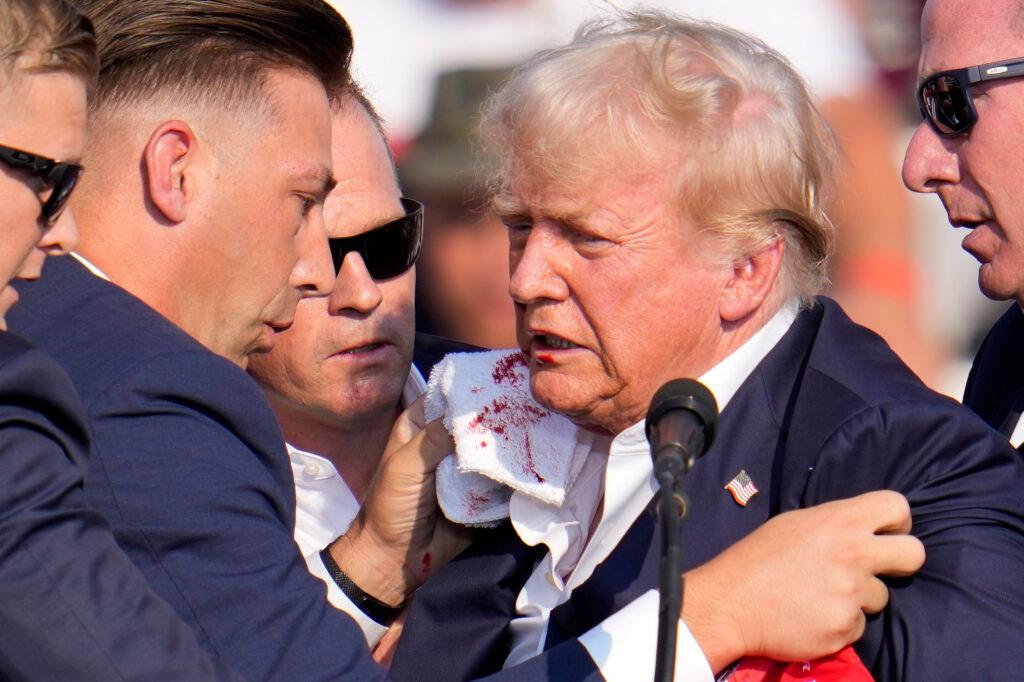
Warner: And to this point, the Secret Service is not in a vacuum at these events. There's often an interplay with local law enforcement and you find there to be room for improvement in, you said, command and control – in understanding who's in control when, why, etc.
Rep. Crow: Yes. I was an Army Ranger and a paratrooper, and I served three combat tours in Iraq and Afghanistan. What I learned more than anything (in) conducting special operations missions across vast distances, with units of different branches of the service, different countries, is the ability for all of those units across space and time to communicate with each other, and then unified command and control – who is in charge? How is that person directing the units and is there a common operational picture? Do the commanders have situational awareness of where everybody is and what's happening? That's what is supposed to happen. That is not what's happening at many of these events with the Secret Service. So our recommendations go to that point.
The use of local law enforcement is a little bit of a different issue. What has happened is in the past decade, the staffing, the resourcing, the structure and the protocol that the Secret Service uses hasn't really changed much. But in the past decade our environment, both the threat environment and the way in which we campaign, has changed drastically. Our elected officials, me and others, we do a lot more events. The events are bigger, we're more accessible, we are more engaged than folks were just 10 or 15 years ago. So a lot more demand on the Secret Service and law enforcement, the same number of resources, the same paradigm of operating. And you see what happens as a result of that.
Warner: So is it that there's been an over-reliance on locals, and poor coordination when that's the case?
Rep. Crow: That's my view because of the increased demand and the increased threats and really no corresponding increase in the Secret Service or other federal law enforcement agencies.
What ends up happening is the proportion of local law enforcement being involved in very critical security tasks during these special events has gone up. You look at Butler, about 50 percent of the personnel providing critical security roles were local law enforcement. Now, local law enforcement can be fantastic, but these are folks who are not trained and don't have the experience providing personal protective detail for high-level elected officials, including the president and the vice president. They just don't have that training, and yet we're expecting them to perform those functions. So that's why we're looking for additional resources so that the Secret Service itself can do the really important stuff that we asked them to do.
Warner: You made reference to Butler, which of course is Butler, Pennsylvania, site of that rally. At the same time, you are calling for more investment, presumably in the Secret Service. The incoming administration has talked about rather drastic cuts to the federal government. So is there a tension there? Do you think that maybe this is an exception that Republicans and Democrats can agree on a carve-out for?
Rep. Crow: Well, there's always a tension there, Ryan. That is the quintessential tension in governing and legislating. People want to do more and they want more service and they want things done better and they want to pay less for it. I'm not somebody who believes that the answer is always just to throw money at the problem, but in some cases, there are more resources needed.
We need more Secret Service agents, period. We just do. We can't perform these functions with the level of agents that we have. But there also are other ways in which we can use automation, we can use drones, we can use technology that provides these common operational pictures that the Department of Defense already uses overseas. And we can leverage that technology. We can leverage new ways of doing things to actually provide better service and to get the job done for cheaper and more effectively.
Warner: Is there a routine review of Secret Service operations? I mean, I can imagine some people thinking why did it take two attempts on a presidential candidate's life, a former president's life, for this to come to the surface? Is there, not a review every few years that says, here are weaknesses, here's what we need?
Rep. Crow: Well, the Secret Service falls under the Department of Homeland Security, which is a massive agency. So actually one of our recommendations is to assess whether or not the Secret Service should still be within DHS, because, is it getting overlooked? Is it being subsumed by this larger budget and the politics of DHS, which is asked to do a lot of things in a lot of different areas, or should we remove it and make it an independent agency, which actually would help with oversight, would help inspector generals do the job more effectively?
I actually am somebody that falls in the camp that I believe the Secret Service should be removed from DHS. I understand there are arguments against that, but I believe in this instance the mission is a no-fail mission. It just cannot fail. And I think the importance of that requires for it to be separated so that we can actually do the oversight, make the decisions about resources that the Secret Service doesn't have to fight within DHS for its money, for its resources. And we can go from there.
The Homeland Security Committee is the committee with primary oversight. There are inspector generals within DHS that have that job, but clearly, there are some gaps. And we identified many of those gaps in our task force investigation and report
Warner: In addition to needing more resources, you find the Secret Service is trying to do too much. For example, even as there are more and more candidates and elected officials and former (electeds) and they have a higher profile in holding more events, the agency has to protect foreign dignitaries. Would you end that?
Rep. Crow: I think that's too broad of a way to say it. One of our recommendations, one of our findings, is that the Secret Service is being asked to do too much, and that includes security for foreign dignitaries. The solution to that is not just additional resources, which is part of the solution, but narrowing the scope of the protectees. The president of the United States, the vice president, their families and foreign dignitaries at the presidential or prime minister level need to be protected. Obviously, everybody else does too and I'm not trying to say that the value of life is different depending upon your title. That's not what I'm saying. What I'm saying is that the Secret Service mission is a no-fail mission with respect to the highest-level officials. If you're diluting that to protect folks at all levels, then it makes it harder to ensure the no-fail mission actually remains no-fail.
What I'd like to see is a narrowing of that scope to make sure that they can do that core task and then we look at what other agencies and departments have the capability and the training to actually fill in and do those other protection missions.
Warner: Enacting three dozen recommendations is going to take time for sure. What is the most immediate fix you can see?
Rep. Crow: The most immediate fix is actually culture. Sometimes it takes a long time to change the culture of an organization. Let me use one specific example of something that I think can change really quickly. We discovered that there was this culture where agents didn't feel empowered to speak up when something was wrong.
There were many points throughout the operation in Butler, Pennsylvania where Secret Service were asked to do things and they noticed something was wrong, and yet they didn't speak up and nobody said, “Hey, we're seeing something that's inconsistent with our security plan. We need to fix it.” They just carried on. Had people done that, Crooks would've been prevented from firing those shots.
Now, there are plenty of examples within organizations – when I was in the Army, there is the culture (that from) the lowest-level private to the highest-ranking general, anybody at any time can say “This is not safe. There's something wrong. I noticed a problem with the plan. We need to address it.” There is a permission structure to do that. Similarly, every time we get on an airplane, whenever anyone flies, there are well-documented aviation disasters that occurred because the lowest-ranking pilot in the cockpit noticed there was something wrong but didn't feel like they could speak up to the captain, so perfect example.
You need to empower everybody at every level to speak up and to change the plan if necessary. And that just didn't happen. And I think that can happen quickly, and it doesn't actually cost taxpayers anything extra.
- Rep. Jason Crow and assassination task force hold final hearing ahead of report on Trump attacks
- Rep. Jason Crow will help investigate Trump assassination attempt on congressional task force
- ‘Threats against elected officials are at historic highs’: Rep. Jason Crow on the Secret Service, protecting candidates, and attempted assassinations
- Task force investigating Trump assassination attempts pins blame on Secret Service failures in first hearing

